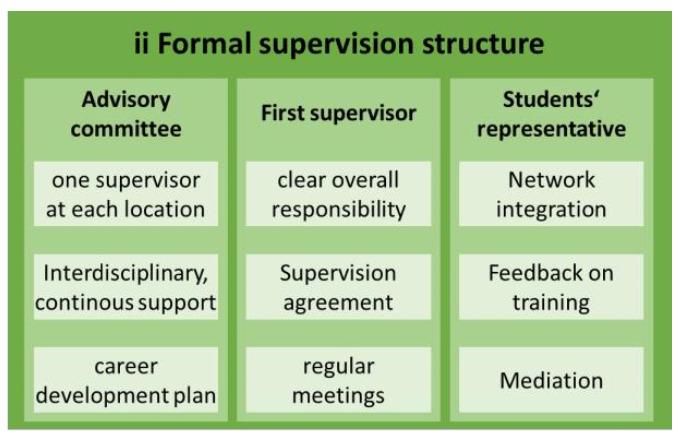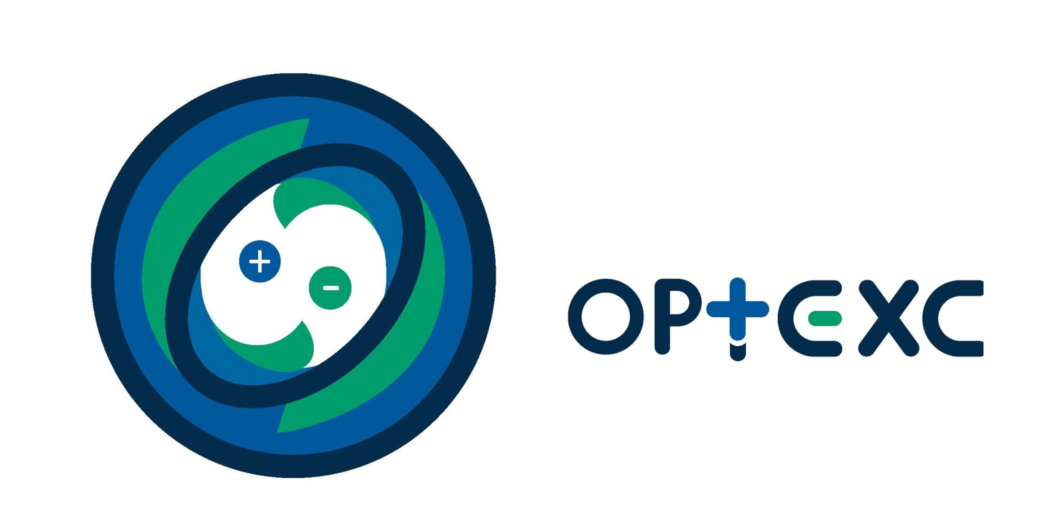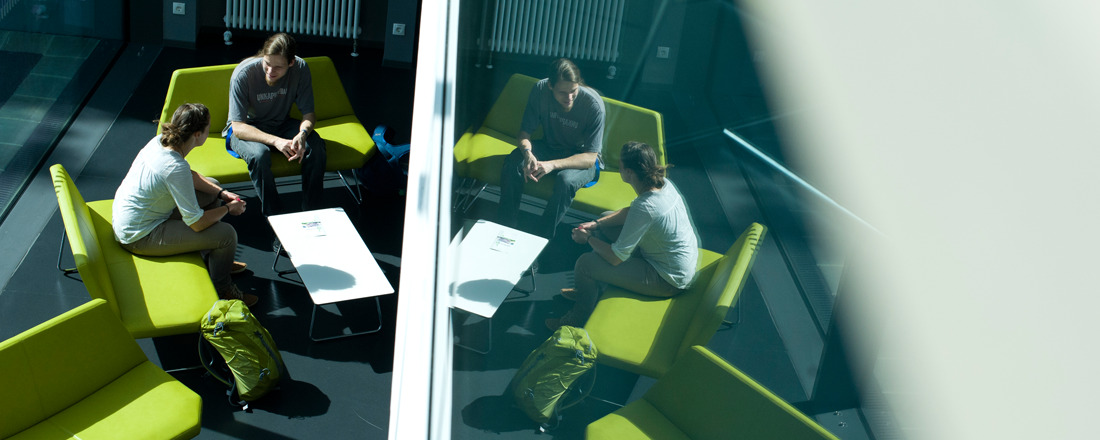Supervision

In accordance with the formation of thematic clusters, it is important to us that each PhD student will not be guided not by a single supervisor, but by an advisory committee that consists of a first supervisor and two co-supervisors, at least one of which must be from a partner institution. This structure of the advisory committee ensures that there is a clearly identified responsible supervisor at either location, be it for in-depth advice during a long stay in the framework of a joint PhD or for consultation and coordination during the shorter stay of single-degree students. Furthermore, you are able to draw on different expertise for your project, and you will be more independent in your research. The advisory committee will also counsel on the Career Development Plan that you will draft together with the first supervisor within the first year of the PhD and update once a year. This plan will help to choose suitable additional training modules and courses as well as beneficial research visits or internships.
The entire advisory committee meets regularly, at least twice per year, discusses with you your research progress and gives advice regarding project-related issues, formal training and the Career Development Plan. These meetings will occur partially in presence, e.g., at the annual network symposium, and partially online. They complement the regular, typically monthly, hybrid meetings of the thematic cluster and the weekly local research group meetings. Together with the regular first supervisor meetings, this will ensure that you receive lots of feedback on your progress. MON and UoM also have formal annual progress reviews (“milestones”) built into their PhD programs where students present their research to a panel of academics for assessment and feedback, which will apply to all joint PhD students.
The formal elements of the IRTG’s qualification programme such as professorial supervision, lectures and seminars are embedded in the Bayreuth Graduate School of Mathematics and Natural Sciences (BayNAT). BayNAT is an administrative structure at Bayreuth that spans several faculties of natural sciences, mathematics and engineering.


